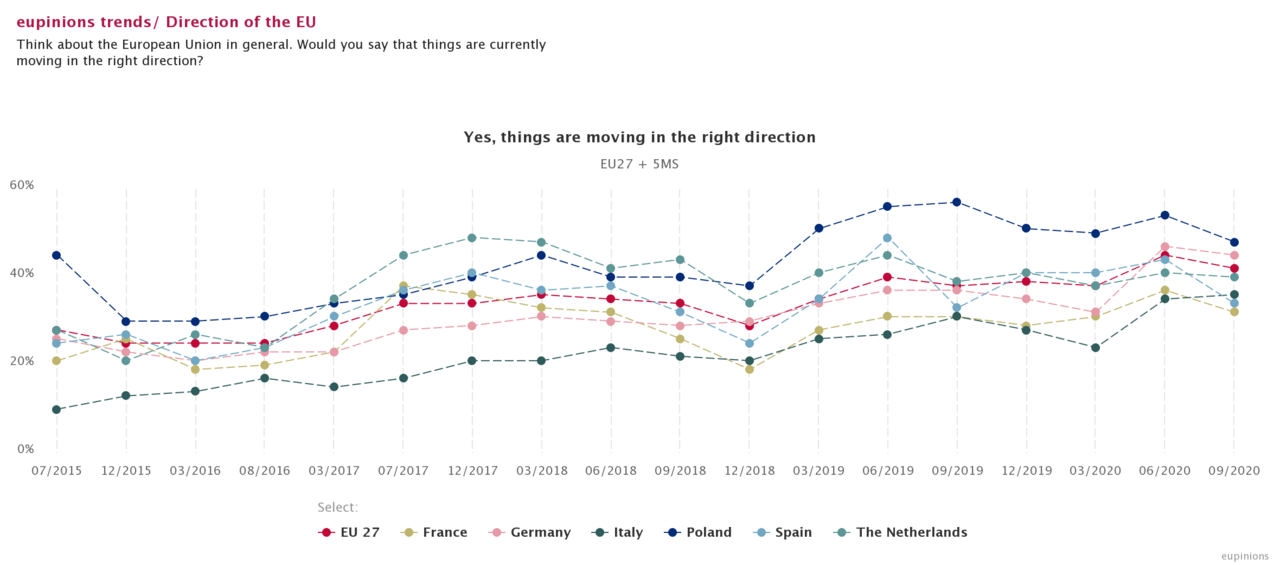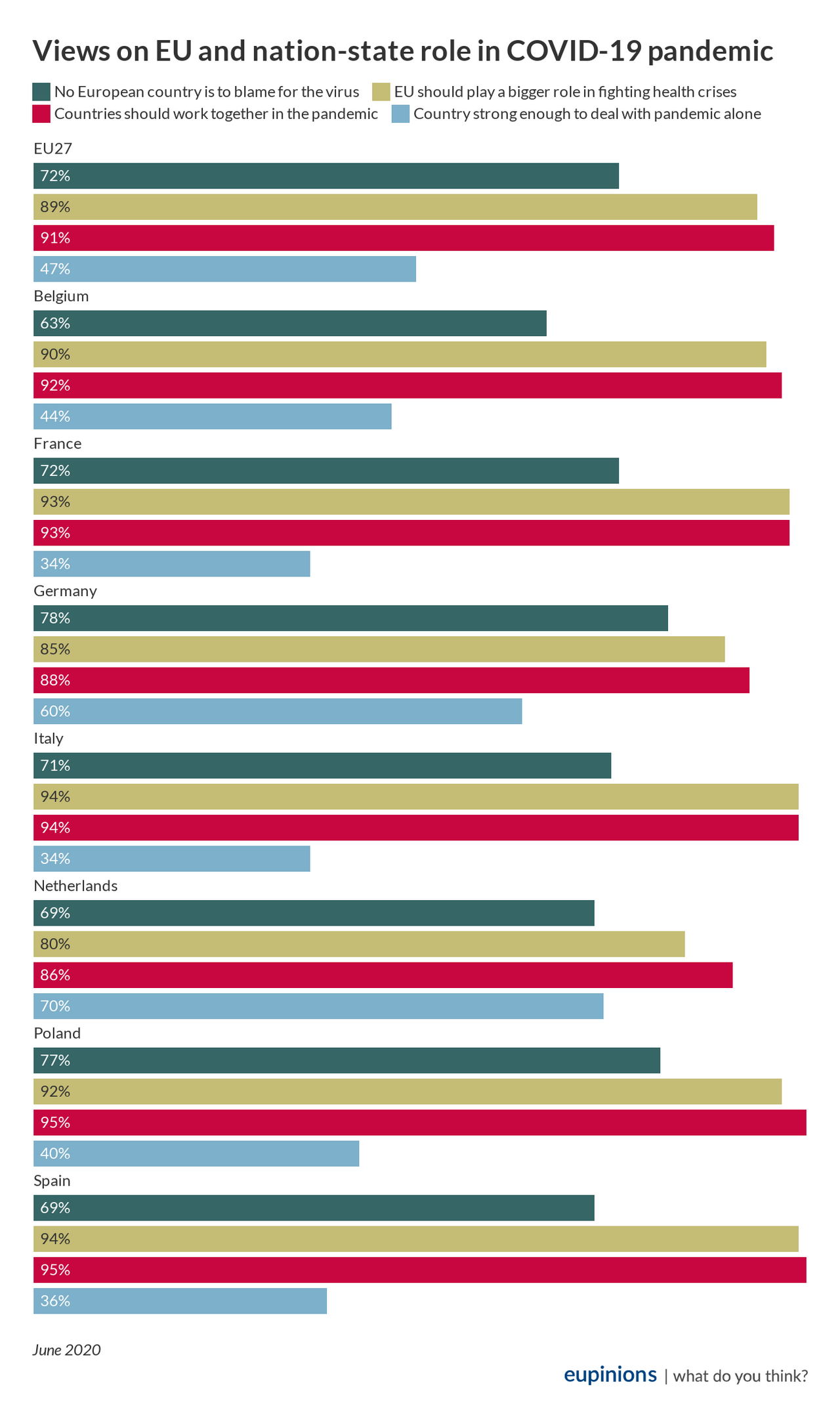Every week, surveys from all across the EU tell us what Europeans are thinking, feeling and talking about. In our segment, eupinions echo, we collect these voices and play them back to you. Each week, we highlight one survey of particular interest in a short blogpost and share daily new survey results via our website and our twitter channel.
There is certainly no shortage of survey data trying to gauge the sentiments citizens of Europe hedge towards the European Union. We ourselves regularly publish our eupinions Trends data, in which we try to get an as accurate and up-to-date feel on the pulse of the EU and its people as possible. So whenever someone else releases new data in this field, it is always interesting to compare notes and see how close those findings correlate with our own and how their questions differ from ours. The last week of November saw another such release as Ipsos published its European Project 2020 report. Let's have a look what we learned.
The European Project in 2020 survey by Ipsos focusses on three key areas of interest: the direction of the EU and how it has evolved, the impact of the EU on the world stage and the EU's role in managing the Coronavirus.
To gauge peoples' overall feelings towards the direction of the EU both in the past and present, the survey asked respondents two questions; whether they believed Europe was stronger today thanks to the European Project and whether they believed the EU was currently on the right track for the future. Across the 9 EU countries included in the survey, 47% of Europeans believed that the European Project had made Europe stronger today than it would have been without it while only 22% believed it to be weaker due to the European Project. Looking at individual countries, people were most optimistic about the past effects of the European Project in Sweden Hungary and Poland, where 58%, 57% and 55% of people respectively believed that Europe today was stronger thanks to it. While Sweden comes as no surprise here (Scandinavian countries have been repeatedly the most positive about the EU in the past), Poland and particularly Hungary are less intuitive here, seeing as both countries have been repeatedly at odds with the EU over a variety of issues such as immigration.
Asked about the current direction of the EU, people tend to be considerably more pessimistic unfortunately. Overall, only 29% of EU citizens surveyed thought that the European Union was currently heading in the right direction while 45% believed that they were off on the wrong track. Still, it is also important to note that these figures have improved compared to Ipsos figures of previous years where only 28% of people were positive about the EU direction in 2019 and only 21% in 2017. The countries that were the most pessimistic about the future of the EU were Belgium, France and Italy, with 54%, 51% and 50% of the population respectively seeing the EU on the wrong track for the future currently. People were the least pessimistic, again surprisingly, in Hungary and Poland, where only 39% and 40% saw the current EU direction negatively. In fact, among the countries surveyed, Hungary has been the only country, in which more people saw the EU on the right track (41%) than off on the wrong track (39%).
This is in line with our own findings from our most recent batch of eupinions Trends data, published in October 2020. While our country selection differs slightly and does not include Hungary, when asking about the current direction of the EU, our data, too, shows Poland on top as the most optimistic nation (48% approval) and France and Italy at and near the bottom (32% and 36%).




